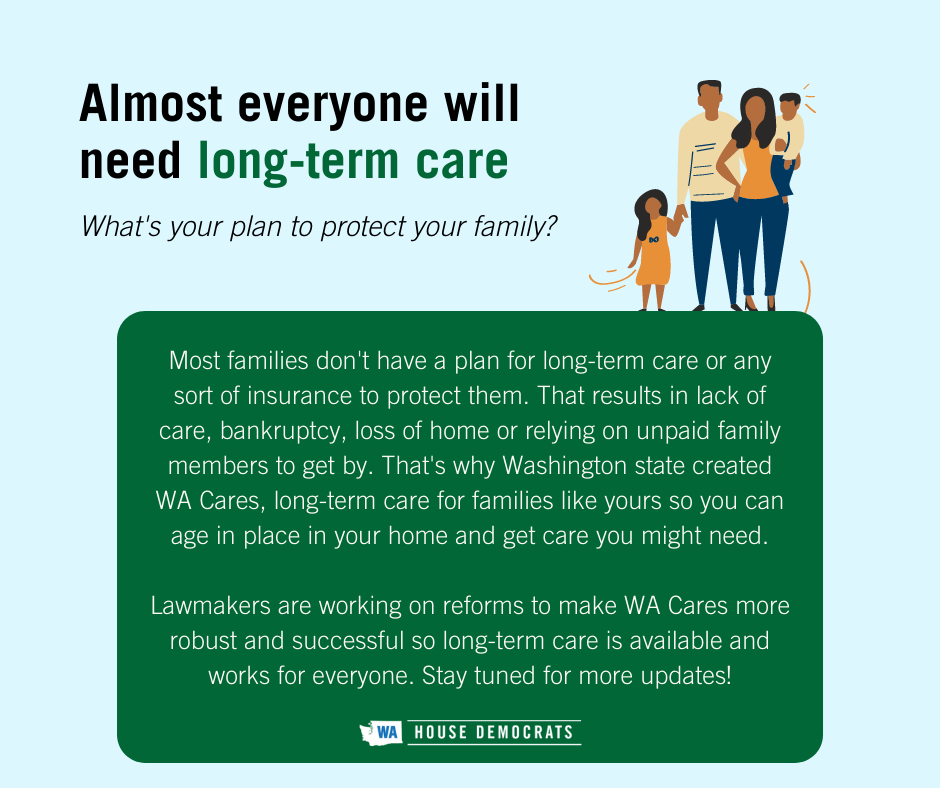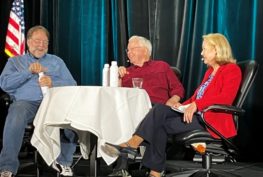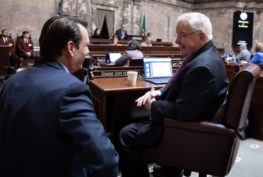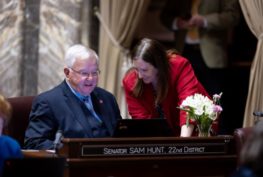Dear neighbors,
It’s been exactly one week since we convened virtually for a townhall. We shared our priorities and answered questions about this session and legislation. As we embark on Week 4 of the legislative session, we’d like to share more on what we’re hearing from you as well as what we’ve been working on, on your behalf. Even with the speed of a short session, we want to make sure that our community is being heard so we can accurately represent you at the Legislature. Here is how you can participate:
- Remote Testimony: Last year we saw public participation increase in the committee process by 300%! If there is a bill you’d like to testify on, check out the Legislature’s website for more information. For committee hearings, floor debates, and more, visit org.
- Contact our offices: As always, you are welcome to reach out to us for any comments or questions. You can find our contact information below.
Report from Sen. Sam Hunt
Outdoor School for All
The pandemic has forced us to spend more time indoors, often with less exercise and fresh air. Children have experienced this, as well as isolation from many of their friends and playmates. To address this, I’ve sponsored Senate Bill 5925, the Outdoor School for All Program. Students will be able to get outdoors and “spread their wings.”
Children thrive physically, emotionally and academically when provided with individual and group outdoor activities. Today’s children spend up to 44 hours a week in front of a screen. This may build strong fingers and thumbs, but the rest of the body suffers. Many children spend less than 10 minutes a day devoted to outdoor activities.
Organized outdoor education provides stress reduction, better academic performance, and helps students thrive. It also enables them to actually experience the great outdoors!
The outdoor school program will provide outdoor school experience for fifth and sixth grade classes, with opportunities for high school students to serve as counselors. Students will spend three to five days and up to four nights at a camp or facility that is suited for outdoor education. There are currently numerous facilities in the state. The focus of these educational opportunities will be on learning more about the outdoors, often in a forest or natural setting, environmental education, as well as development of social and emotional skills. One example of such a center is Cispus Learning Center in Randle. Participation will be determined by competitive grants funded by the Legislature.
Employees Seek Collective Bargaining Rights
In recent years the state has expanded collective bargaining rights to assistant attorney generals, administrative law judges, and Washington Fish and Wildlife agents. Two groups are seeking collective bargaining authority this year, members of the Washington Management Service (WMS) and legislative employees.
An employee should have access to a union to represent their concerns relating to issues such as hours, days of work, and working conditions. Many WMS members feel they have inadequate support in carrying out their jobs. WMS employees are in a middle ground where many are not administrators or supervisors. Sometimes a WMS employee has to ignore an issue and “go with the flow” or seek outside help such as hiring an attorney. This does not build morale or help the business climate. SB 5579 would allow WMS employees to unionize.
Employees of the Legislature work long hours–including early mornings, late evenings and weekends. Given the nature of the Legislature and the limits on lengths of sessions, this will not change. However, being able to band together to address needs like working conditions and employee relations could be addressed collectively by members of an employee union. SB 5773 and HB 1806 would allow legislative employees to unionize.
These bills authorize employees to join a union; they do not mandate it. They would allow employees to have the option to exercise their rights to unionize and bargain collectively.
Report from Rep. Laurie Dolan
Better support for all our students
To learn, each student needs to be healthy—physically, mentally, and emotionally. That’s why I’m working on a reform (House Bill 1664) to change our state’s prototypical school funding model so it gives students the support they need.
Under this legislation, there would be more funding for school nurses, social workers, psychologists, counselors, safety staff, and parent involvement coordinators.
The bill prioritizes the hiring of Educational Staff Associates (ESAs) who are masters level professionals to work with our students who most need their help. The bill also includes accountability measures, with the state Superintendent of Public Schools reporting back to lawmakers about actual staffing levels and other important data.
This legislation passed the House Education Committee and is now being heard in Appropriations.
Listening to you about WA Cares reforms
Many of you contacted my office about the WA Cares program, and I am happy to say that the House took early action and passed–House Bill 1732 and House Bill 1733, both of which passed the House, the Senate, and were signed into law by the governor
These bills made important exemptions for military families, people close to retirement age, and those living in border counties. We also paused the collection of the tax to pay for this program, which will give us time to refine and perfect this first-in-the-nation program to help people when they need care and to help them stay in their homes.

Report from Rep. Jessica Bateman
Housing for all
Everyone deserves a safe, affordable place to live—a home.
For every $100 increase in the price of rent, homelessness goes up by 15 percent. And rent has gone up a lot more than $100, with families often spending half their paycheck—or more—on housing.
That’s why I wrote The Homes for WA Act, which would return to the days where we had more housing choices —middle-housing—along with single-family detached homes. This legislation would expand middle-housing options near mass transit stops to give people more affordable housing along with safer, shorter commutes.
I’m also supporting other legislation to help with the housing crisis, including bills to expand accessory dwelling units, which you may know as backyard mother-in-law houses. This is a great way to expand our stock of affordable housing—and a good way for people to bring in extra income or let a family member live close by.
This legislation passed the House Local Government Committee and I’ll keep you updated as it moves through the Legislature.
Helping those with dementia
I’m happy to report that my legislation on our state’s Dementia Action Collaborative (House Bill 1646) received unanimous support from lawmakers in the House Health Care & Wellness Committee and passed the House 97-0
Today, more than 100,000 people in Washington state live with Alzheimer’s, a number that will nearly double by 2040. This is a particular issue for family members of people with Down’s syndrome, with a 30 percent rate of dementia by age 50 and a 60 percent rate by age 60.
This legislation strengthens and reforms the collaborative, which is a group of experts, family members, and stakeholders who worked over the last 5 years to develop our state’s Alzheimer’s plan and implement those recommendations.
Keep in Touch
We encourage you to reach out to us with questions, thoughts, comments, and ideas you may have. Click here for Sen. Hunt’s contact information, here for Rep. Dolan’s and here for Rep. Bateman’s.




